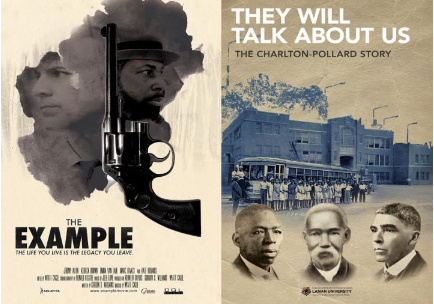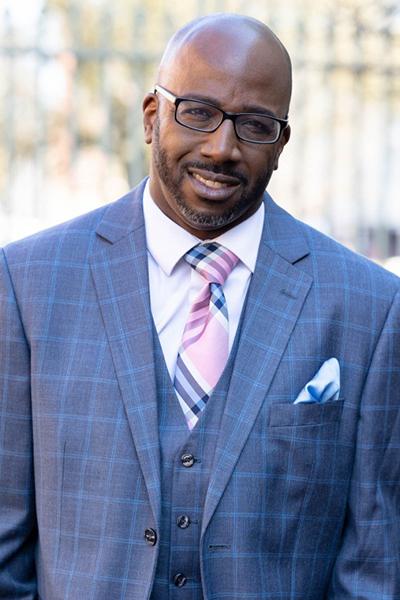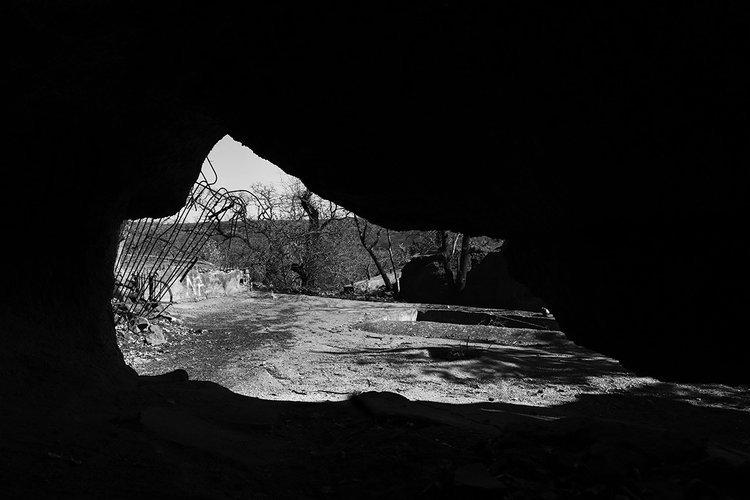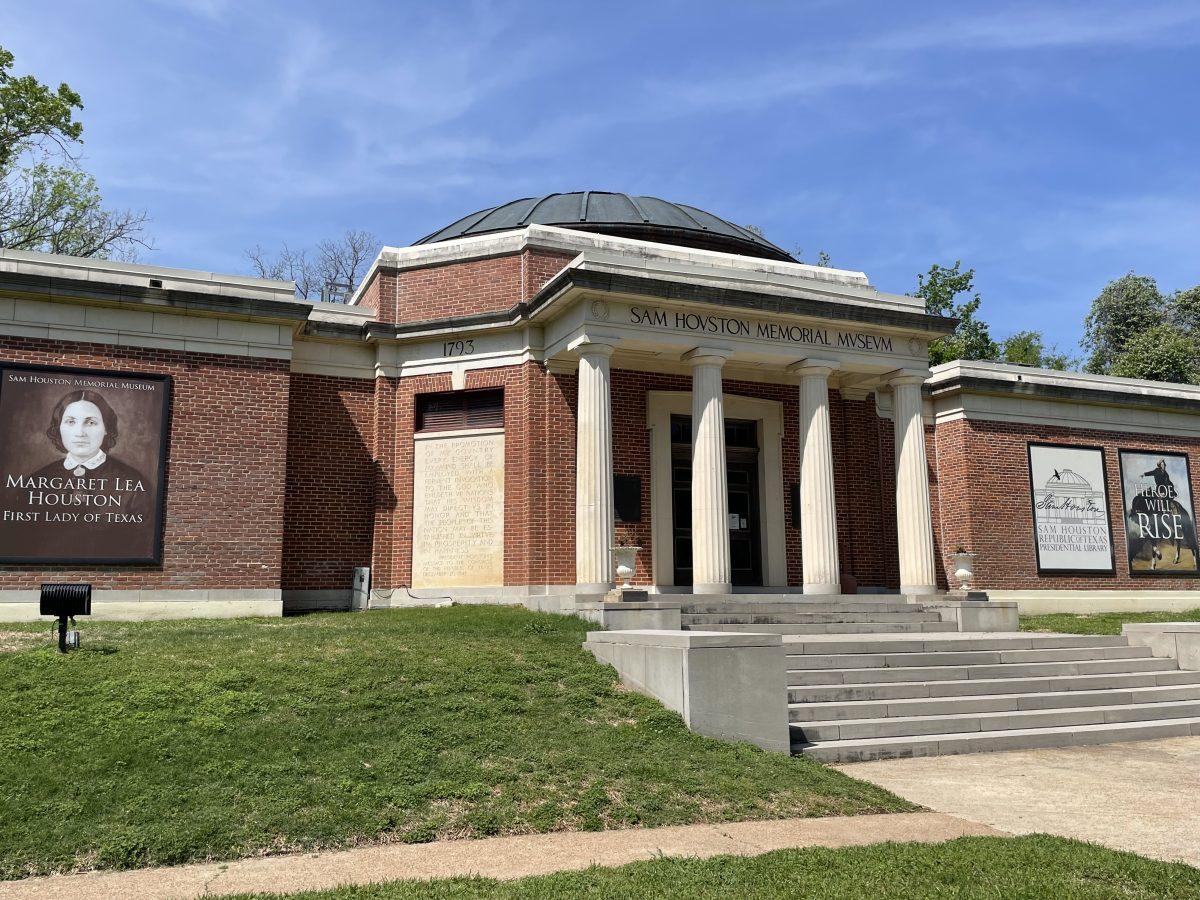
An award-winning writer, producer, and director Gordon S. Williams paid a visit to Sam Houston State University showcasing two of his projects: The Example and They Will Talk About US: The Charlton Pollard Story. He is an Alumnus of Lamar University Alumni and is currently the television studio operation manager with many years of experience in the film industry.
1. What made you want to do from a general?
“Growing up Just watching television and movies I’ve always had a curiosity about how it was de so that led me to go to school at Lamar university to get a degree in communication, Sam Houston was intentionally the plan at first because all things Dan rather and I was actually coming to the communications building here. My sophomore and junior year just planning to be here, but I went to a summer program at the end of my junior year at Lamar and went over that way.”
2. What do you think are the benefits are drawbacks of independent filmmaking?
“Money is always a concern in making as far as making these projects so whether you’re able to cut it out of your own pocket or crowdfunding it’s a process it’s a lot to bring your creative vision to life. But it’s a thing I do like about being on this end of things you have more creative control so your initial vision is a lot more likely to come out. So, beginning content creators and independent filmmakers I would encourage them to relish this time to create on their own.”
3. If you had the opportunity to go reshoot one of your films which one would it be and why?
“I wouldn’t, because they’re all learning processes, I think it’s important for me to be able to see the progression in my work or when I speak to students at Lamar university or if I travel around the high schools or of the colleges and universities I’ll have the opportunity to show students my progression and my growth, but it is all about creativity and I want to create.”
4. What is a story that hasn’t been made that needs to be?
“There are so many with these two projects especially the Charlton Pollard documentary I’ve moved more into the history discipline which I never thought I would be. so, having the opportunity to speak to people at different departments of history and colleges and universities and talk with historians there are a lot of great stories out there and I feel as if there is a gap between creatives and historians and I think the gap should be filled and more creatives should be telling these historical stories whether it’s a documentary or creating historical fiction pieces.”
5. What project do you think you’ll be working on in the future and do you have one in mind now?
“So, I host Salsa events over in Southeast Texas in Beaumont we were at a place called Cotton-Creek winery for 11 years until the pandemic. So, for 2 1/2 years or so we weren’t out at that place to dance and this was one of those nights to where couples will mark on the calendar and they will make sure they were having a babysitter and it was a community gathering taken away by the pandemic so I got together with some of my creative colleagues and we documented the first night of Salsa at Cotton-Creek winery after the Pandemic. So, we’ve done interviews already so I didn’t realize how much people missed the night until people started telling me and they were like we need this to come back because people wanted to be social. There’s some people that come who don’t even dance they just want to be in the space being able to tell those human stories and people still dealing with health issues and all this kind of stuff it was their space to come in and just relax.”
6. In your experience, what is the hardest aspect of filmmaking?
“Besides the money aspect I can’t say there’s not parts that I don’t like, I think it is being able to get people to buy-in to what you want to create at times especially at the smaller level because there may not be a lot of money you will not be able to pay anybody and getting those people to sign on wanting to be aboard but also making them feel as if they are integral to the process they need to be able to see the process, they need to be able to see the progression they need to feel like my time and my talents were valued and able to see that in the finished product.”
7. What challenges might African American film makers face in the film industry?
“That is kind of hard to answer because are some things that are changing, there are more changes, more variety in the stories about black or African-American lives in those stories could there always be more? Yes, with streaming platforms and other forms of distribution people need content so it’s a great time to be able to tell stories. Also with technology it’s more accessible to create content so that allows people of different ethnicities just across the board to be able go create content and be able to tell their stories because all those individual stories are important and a lot of those stories are very universal and they can connect to other communities.”
8. do you think that your Film The Example does justice to the events of the Beaumont race riot?
“No, The Example is just an introduction, a lot of people don’t know about the event so through the visual of film they are being introduced to 1943 Belmont race riot it’s the 80th anniversary of the race this year. It’s a part of history that people shouldn’t forget I’m one of those firm believes of if you don’t know your history you’re doomed to repeat it also we were actually criticized while we were doing script readings and we got some feedback and it suggested that needed to be more violent we needed to see more violence and what actually happened but due to having limited resources and money we had to tell the story the best way we could and we talked about a intermit group of people during this tragic event.”
9.What was this inspiration to make it?
“I saw as far as The Example that project research for that started back in the early 2000s I saw a line in a book about Beaumont race riots in Southeast Texas in 1943 and that was it so we had never heard about it in Texas history, living in Southeast Texas so we started moving trying to make a documentary that didn’t take off like we wanted it to so we sat on the research in about 2012 and we decided that we wanted to create something with that material we decided to create a narrative and combine it with all the research. My creative partners were experienced in fatherhood which caused me to think about my father and we came up with a story that focuses on fatherhood, commonality, humanity, and difficult choices that they had to make as far as the Beaumont Race riot. As far as the Charlton Pollard documentary Exxon mobile gave money to the department of communication in media at Lamar to give students the opportunity to get hands-on experience. So, students were paid to work on the crew so resume work. but they were also touched by the stories from the people in front of the camera they were moved as well.”
10. What advice do you have for young film students that you wish you knew about earlier?
“I think because of technology, because you have a phone, you can go out and tell stories. I think that is huge technology is definitely working in your favor because everybody has access to technology you make sure that you’re work and your craft stands above everything else. You have to use the resources that you have available, figure out how to maximize them, and it’s not always about money it’s about human resources, it’s about building relationships, it’s about networking, it’s about getting people to see
your vision and buy into it because time is a valuable resource.”






